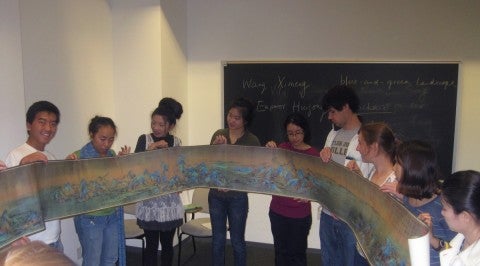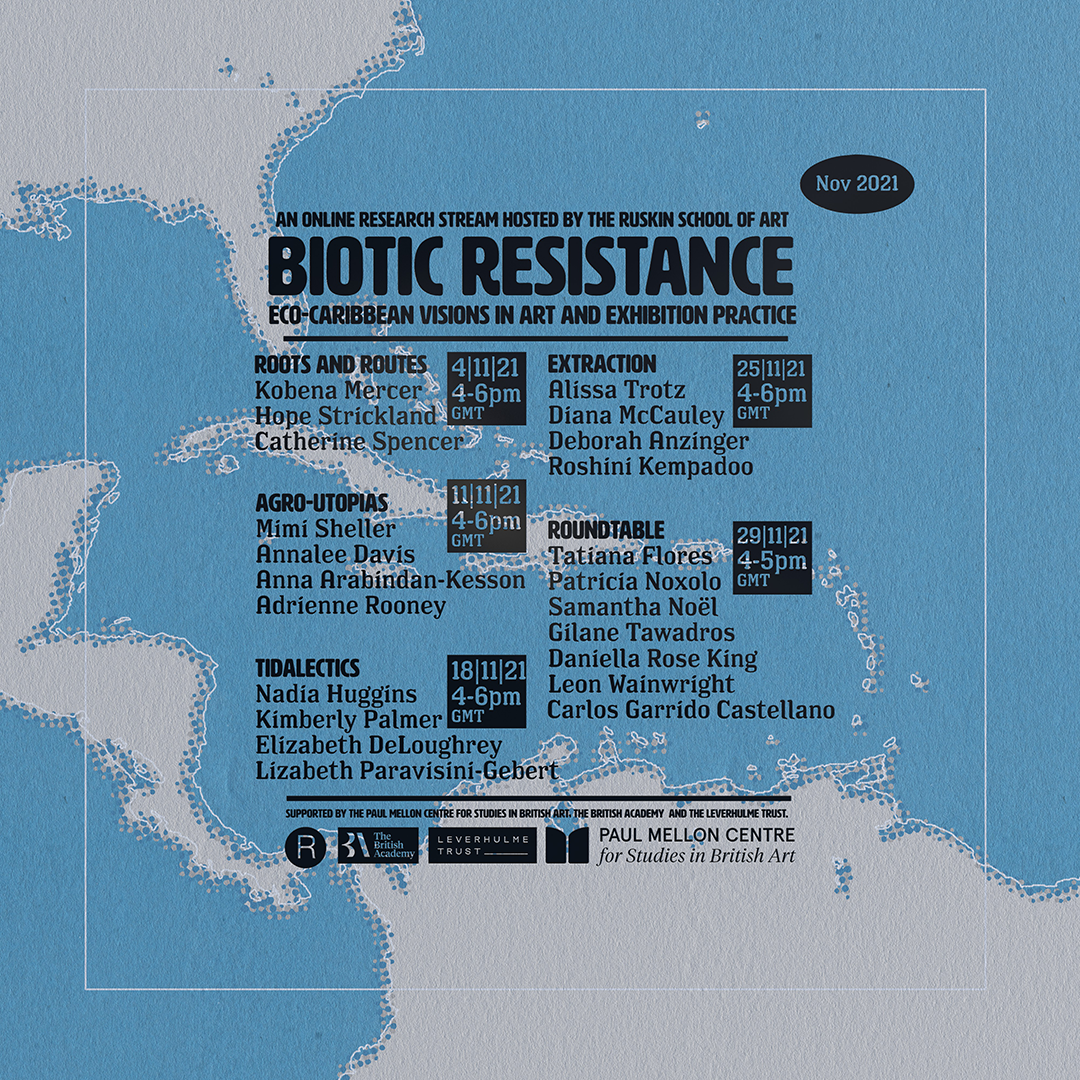Tune into a virtual presentation by Adrienne Rooney, Department of Art History Ph.D. candidate, on November 11, 2021 as part of the online research series "Biotic Resistance: Eco-Caribbean Visions in Art and Exhibition Practice" hosted by the Ruskin School of Art at the University of Oxford.
The Zoom seminar series aims to examine the intersection of art, literature, and environment in the transnational Caribbean and focuses on "the role that artists and thinkers with Caribbean heritage have played in shaping a planetary consciousness that is uniquely suited to thinking through the ecological emergencies of the present."
The program features several panels on various days in November with Adrienne presenting her paper, “Starting from that earth”: The Caribbean Festival of Arts as a Geography of Redress, in the Agro-Utopias panel on November 11th from 4:00pm-6:00pm GMT.
Additional information on the series, including Zoom registration, can be found here.
About the presentation
“Starting from that earth”: The Caribbean Festival of Arts as a Geography of Redress
According to poet and historian Kamau Brathwaite, the inaugural Caribbean Festival of Arts (Carifesta) was one of the most important events to have occurred in the region since Emancipation. Focusing on the early phase of the ongoing, transmedia festival—inaugurated in Guyana in 1972 and followed by iterations in Jamaica (1976), Cuba (1979), and Barbados (1981)—this paper presents a theory as to why. Situating its formation in contemporaneous local discourse regarding the plantation system as the paradigm for understanding Caribbean society past and present, it argues that Carifesta was at its start a sprawling, if incomplete, geography of redress.
When artists and writers who envisioned what became Carifesta recommended inviting creative workers from the “multi-lingual Caribbean plantation culture” to partake, they identified, I posit, the shared matrix of the plantation system and the kinships it created as a logic for uniting the region across imperial language boundaries. By spotlighting Afrodiasporic and neo-slave (visual) narratives, the early festivals crucially turned an eye to the plantation as a site of not only racialized, oppressive economic production but also cultural vitality. Working with Brathwaite and fellow Carifesta participant Sylvia Wynter’s coevolving eco-cultural theories locating (often through gardening/plant metaphors) the roots of Caribbean culture in the provision ground and innerplantation, this paper suggests that Carifesta’s early iterations bared and celebrated a thoroughly regional cultural groundwork whitewashed by colonial aesthetics and epistemology. I put forth that the festival’s roving (re)presentation, nurturing, and dissemination of cultural traditions that flourished out of and in spite of the plantation system formed a geography of repair grown from the racialized geography of the region.


